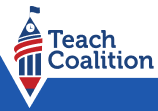July 2020 proved exceptionally busy as Teach Florida worked to provide COVID-19 relief to our families and schools. In just four weeks, we:
- Distributed 247,800 kosher meals to South Florida students;
- Assisted Jewish schools qualify for federally funded remote learning and cleaning supplies;
- Advocated for the passage of the the first ever municipal Pre-K voucher in Miami Beach to supplement VPK; and
- Kicked off our 2020 Get Out the Vote campaign for the August 18 primary.
The fruit of our successful advocacy expanded scholarship programs is already starting to become evident. Take a moment to see how your friendship and support is impacting Jewish education and students in Florida.
Kosher Food Distribution
“Thank you for the invaluable help you’ve provided my family during this summer. The organizers and all of the volunteers are literally life savers for so many families.” – Mom of three kids.
Teach Florida helped distribute 247,800 kosher meals in the month of July alone to feed close to 5,000 students a week. The kosher meal pickup will continue through August 11 and could be extended if the Federal government opts to continue the program into the school year.
The distribution of 247,800 meals to 5000 students a week required the remarkable volunteer service of schools and great volunteers. Teach Florida is grateful for our partnership with Hebrew Academy Community School, Tomchei Shabbos of Florida, Lubavitch Educational Center, Brauser Maimondes Academy, Yeshiva Toras Chaim Toras Emes, Temple Beth Emet and Kosher Koop, without whom this program would not have happened. A special thanks to Mrs. Mindel Keller, Dovie Katz, Rabbi Mark Roth and Nicola Trump, Rabbi Aharon Greenberg, Naomi Cohn and Allison Rudd.
Federal Relief Funding
Jewish day schools will receive between $200-$290 per student in Federal COVID-19 relief funds that is distributed via the state and local school districts. Teach Florida advocated with the state and local districts to ensure that the funds were distributed equitably, while helping many schools navigate the bureaucratic process. Schools are typically using the using the funds for distant learning technology and cleaning supplies.
First Ever Municipal Pre-K Voucher in Florida
The huge Jewish voter turnout in the recent Miami Beach city election led to a new pre-K program that will help our families. On July 28, the Miami Beach City Commission passed a resolution creating a $250,000 fund for Pre-K students. All residents of Miami Beach, regardless of household income, will be eligible to apply for a stipend of up to $2,700 for Pre-K. This program will supplement the current state VPK program and is the first Municipal program of its kind in the State of Florida. The program will launch in the 2021-2022 school year. Thank you to everyone who voted and to Hebrew Academy Miami, LEC, and YES for rallying key lay leaders in support of the resolution. Click here to read the full resolution.
Election 2020
Our Jewish vote can lead to significant gains! That’s why we launched our 2020 Get Out the Vote campaign with nearly 1000 calls to voters asking them to request mail in ballots. With coronavirus still going strong in Florida, there is no safer way to vote. Request your mail ballot by clicking here. Early voting also begins this week click here for a list of early voting sites.
You can vote early in Broward – August 8-16, Miami/Dade – August 3-16 and Palm Beach – August 3-16.
Scholarship Expansion and Availability
State K-12 scholarships are a lifeline for many families sending their children to Jewish schools. All the more so in the wake of COVID-19’s devastating financial impact for so many families. Scholarship funds are still available and there is still time to apply. Families with losses of income due to COVID-19 may be eligible for a scholarship. Apply to Step Up for Students and AAA Scholarships asap.
Due to our advocacy, legislation was passed this year so that all students who receive a scholarship once will keep their scholarship through high school, regardless of changes to household income. This has already saved 1500 students around the state from losing scholarships due to slight increases in household income and improved schools’ ability to plan their budgets.


